With Dark Days In The Past, Hannette Staack Plans Comeback To Competition
With Dark Days In The Past, Hannette Staack Plans Comeback To Competition
Three-time ADCC champion, and an IBJJF Hall of Famer, Hannette Staack is planning on making a comeback to the competition scene.
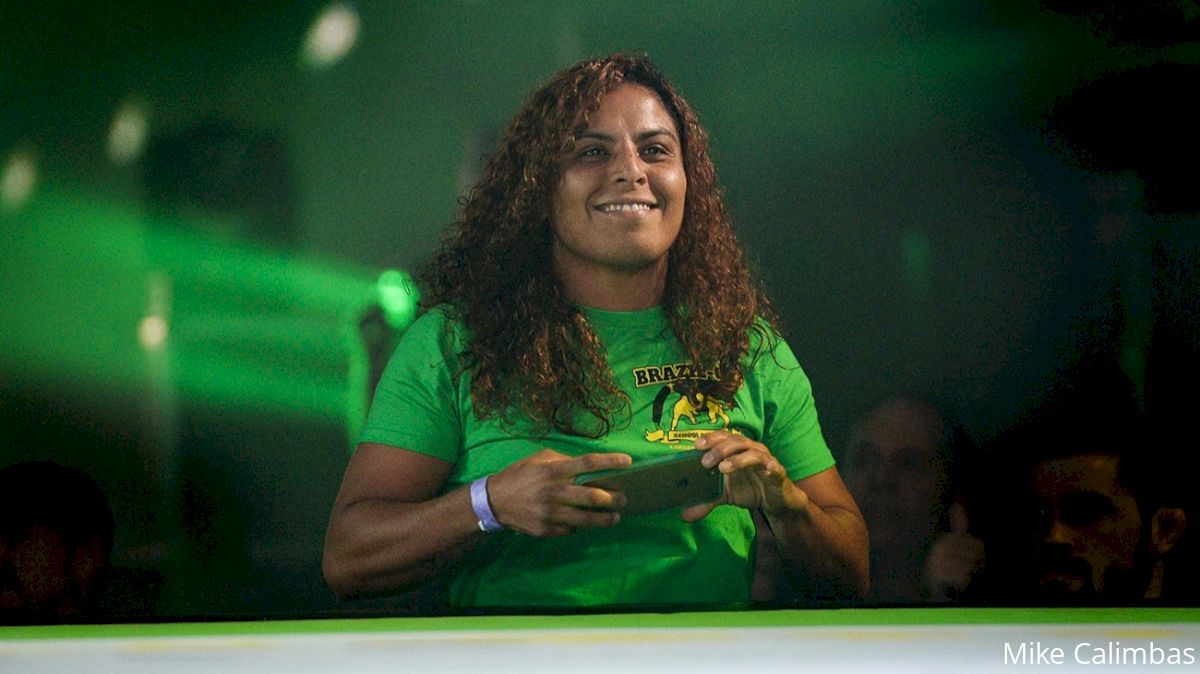
Hannette Staack has nothing to prove.
A seven-time world champion, three-time ADCC champion, and an IBJJF Hall of Famer, she has earned her place as one of the most decorated competitors of all time. But that's not slowing down her plans to return to the tournament scene.
After a two-year absence from competition, the 38-year-old feels like she's in the best shape of her life -- and she's not done yet.
Twenty years ago in Rio de Janeiro, an 18-year-old Staack stepped on the mats for the first time. She was an avid rock climber at the time, and a friend suggested that Staack's grips would make her a natural at jiu-jitsu.
"So I said, 'Yeah, I can give it a shot,'" Staack recalled. "I did my first class and I fell in love."
The only woman in an academy full of men, her first challenge was convincing them she was there for the right reasons.
"Back in the day, if you were too feminine, people would think you were there for something else, not for jiu-jitsu," she said. "Especially in the beginning, the guys would look at you and think, 'Oh, it's one more. She's not going to last.' So that's why for me I had to blend in with the guys."
She never wore makeup to class and didn't dress up to impress anyone. Every moment she was on the mat, Staack made sure that she was training hard.
"The guys came to really respect me, because after a couple months they saw I was there for jiu-jitsu," she said.
That wasn't her only struggle. Soon after she started training, her father abandoned the family and left her mother to raise Staack and her three sisters alone. Money was tight, and there were few jobs for women that paid enough to afford a luxury like jiu-jitsu.
If her first professor, Fernando Cruz, hadn't seen Staack's dedication and offered her a full sponsorship to train, there's no telling where she would be now.
"I wasn't Hannette Staack at the time," she said. "I was just a white belt coming through the door, and he gave me the best gift. The thing that supports my whole life and my family. I cannot be more grateful to him."
After less than three months of training, she entered her first competition, defeating an opponent more than 30 pounds heavier.
Then she ran into another obstacle, one that often plagues female athletes: She began a relationship with a jealous boyfriend who gave her an ultimatum.
"He said, 'OK, you have to choose me or jiu-jitsu,'" Staack recalled. "And I was 19 years old at the time, so what do you expect? I made the wrong choice. I chose him. But he was really abusive. After I was able to finally get away from this situation, I promised myself that no one would ever stop me from doing what I want to do, and what I wanted to do was jiu-jitsu."
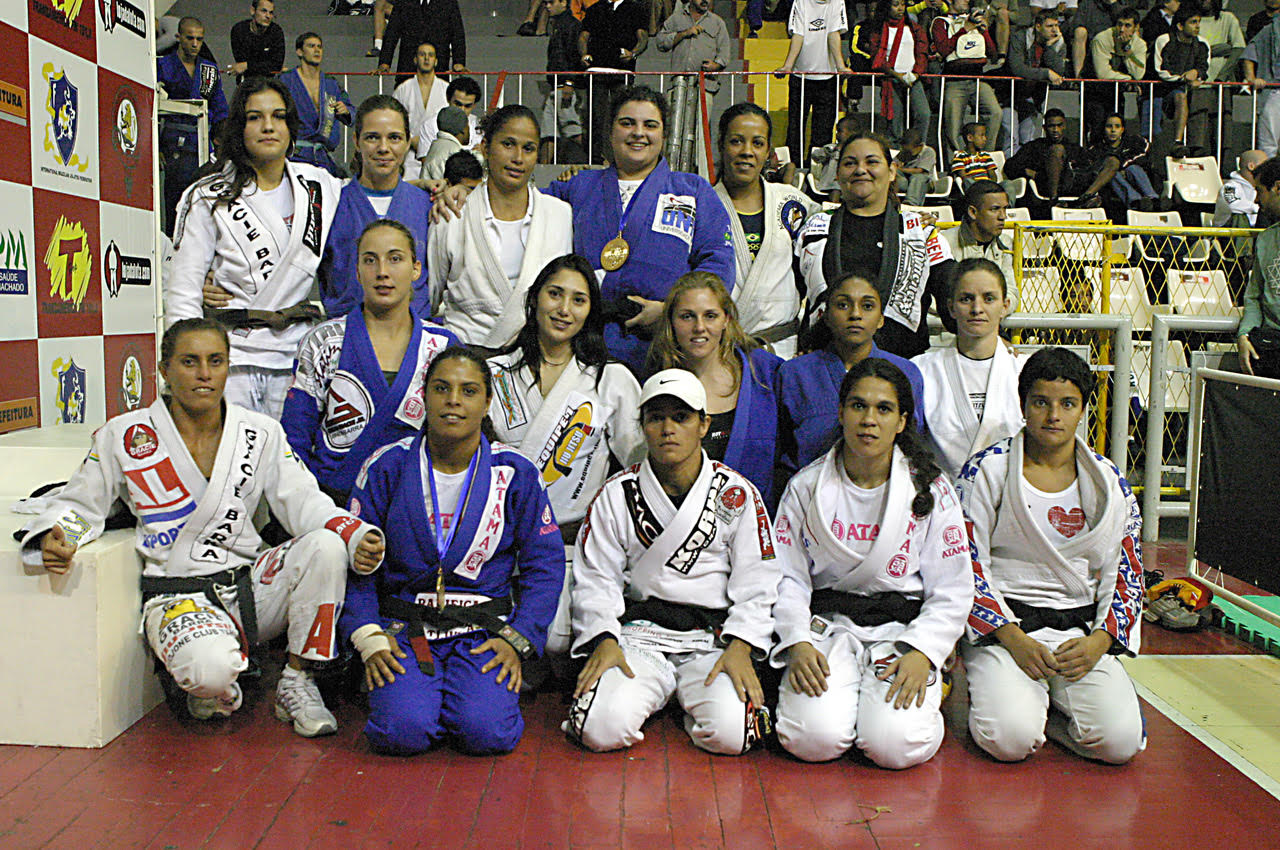
IBJJF World Championships in Rio de Janeiro, Brazil. Photo: Hannette Staack personal archive.
So began an impressive streak of back-to-back IBJJF World and ADCC championship wins by Staack, a career-defining run that helped bring women's jiu-jitsu to the forefront and demonstrated that in a male-dominated sport women can be just as exciting to watch.
For example, in the absolute finals of the 2007 ADCC Championships in Trenton, New Jersey, Staack threw a flying armbar on Rosangela Conceicao, submitting her to the roar of the crowd.
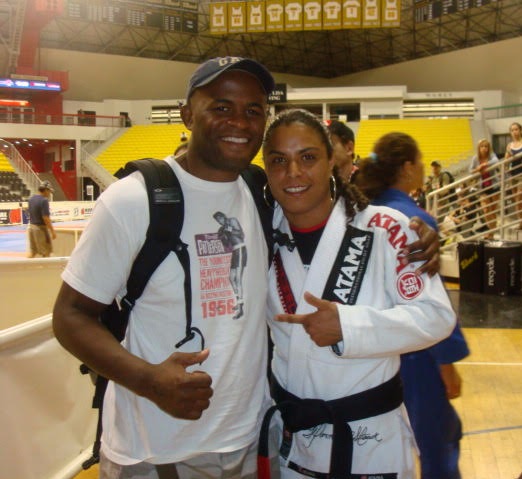 That same year, Staack and her husband and coach Andre "Negao" Terencio (pictured right) moved to the United States and opened an academy in Chicago. Three years later, Brazil 021 School of Jiu-Jitsu was born.
That same year, Staack and her husband and coach Andre "Negao" Terencio (pictured right) moved to the United States and opened an academy in Chicago. Three years later, Brazil 021 School of Jiu-Jitsu was born.
"In 2010, I started slowing down in the competitions, because we were building Brazil 021," Staack said. "So now my focus was not 100 percent on the competition -- I also had to make this happen. The business was basically a life investment. I have all these titles in jiu-jitsu. I have all these accomplishments, but what am I going to do with it, right? I had to make it somehow turn into a profit."
Then in 2015, a perfect storm of events drove her into depression. Injuries she suffered to her ACL and meniscus, which she had lived with for nearly 10 years, worsened and surgery became unavoidable. Then she found out she was pregnant, but just as she began to enjoy the thought of finally starting a family with Terencio, she had a miscarriage.
"It was really a dark time in my life, because I feel like for women, we have this role in life," Staack said. "We have to be this person that everyone expects you to be. And in my case, I made a lot of sacrifices to be on top. And one of the things that I had to sacrifice was to postpone having a family. Then I sacrificed my jiu-jitsu career for the academy.
"But after all this happened, it really made me revisit my purpose in jiu-jitsu. I had always felt like my life in jiu-jitsu was pretty much based on competition. That was my identity. And once this was taken away from me, I felt like I had no ground. I felt like I had no purpose in jiu-jitsu anymore."
Recovery from surgery was excruciatingly slow, but toward the end of 2016, she felt strong enough to begin working out again. She started doing Crossfit, getting stronger and finding that same familiar competitive spark she had felt with jiu-jitsu. Then one of Staack and Terencio's students from a social project in Brazil came to live with them.
"Seeing him -- he has the same drive that I had -- it motivated me to want to do this again," Staack said.
The hard part was convincing Terencio.
"We have a very close relationship," she said. "He's my coach, he's my professor, my husband, and we have a business together. So it's a very good, but a hard place to be, right? Because of course, we are getting older, we want to have our family. But he didn't marry this regular woman. This is not an average woman. This is a special person, right?"
He had seen her achieve everything and had been there during her greatest moments. Terencio stressed that she had nothing to prove. She had done it all.
She explained to him that her reasons for returning ran deeper. She hadn't been ready to slow down when they began building Brazil 021, and she hadn't been ready to leave the mat when her knee finally gave out and she had a miscarriage.
Her career on the competition mat felt unfinished. Staack explained how she had fought her way out of depression to ask herself what it was that she truly wanted.
A seven-time world champion, three-time ADCC champion, and an IBJJF Hall of Famer, she has earned her place as one of the most decorated competitors of all time. But that's not slowing down her plans to return to the tournament scene.
After a two-year absence from competition, the 38-year-old feels like she's in the best shape of her life -- and she's not done yet.
Twenty years ago in Rio de Janeiro, an 18-year-old Staack stepped on the mats for the first time. She was an avid rock climber at the time, and a friend suggested that Staack's grips would make her a natural at jiu-jitsu.
"So I said, 'Yeah, I can give it a shot,'" Staack recalled. "I did my first class and I fell in love."
The only woman in an academy full of men, her first challenge was convincing them she was there for the right reasons.
"Back in the day, if you were too feminine, people would think you were there for something else, not for jiu-jitsu," she said. "Especially in the beginning, the guys would look at you and think, 'Oh, it's one more. She's not going to last.' So that's why for me I had to blend in with the guys."
She never wore makeup to class and didn't dress up to impress anyone. Every moment she was on the mat, Staack made sure that she was training hard.
"The guys came to really respect me, because after a couple months they saw I was there for jiu-jitsu," she said.
That wasn't her only struggle. Soon after she started training, her father abandoned the family and left her mother to raise Staack and her three sisters alone. Money was tight, and there were few jobs for women that paid enough to afford a luxury like jiu-jitsu.
If her first professor, Fernando Cruz, hadn't seen Staack's dedication and offered her a full sponsorship to train, there's no telling where she would be now.
"I wasn't Hannette Staack at the time," she said. "I was just a white belt coming through the door, and he gave me the best gift. The thing that supports my whole life and my family. I cannot be more grateful to him."
After less than three months of training, she entered her first competition, defeating an opponent more than 30 pounds heavier.
Then she ran into another obstacle, one that often plagues female athletes: She began a relationship with a jealous boyfriend who gave her an ultimatum.
"He said, 'OK, you have to choose me or jiu-jitsu,'" Staack recalled. "And I was 19 years old at the time, so what do you expect? I made the wrong choice. I chose him. But he was really abusive. After I was able to finally get away from this situation, I promised myself that no one would ever stop me from doing what I want to do, and what I wanted to do was jiu-jitsu."

IBJJF World Championships in Rio de Janeiro, Brazil. Photo: Hannette Staack personal archive.
So began an impressive streak of back-to-back IBJJF World and ADCC championship wins by Staack, a career-defining run that helped bring women's jiu-jitsu to the forefront and demonstrated that in a male-dominated sport women can be just as exciting to watch.
For example, in the absolute finals of the 2007 ADCC Championships in Trenton, New Jersey, Staack threw a flying armbar on Rosangela Conceicao, submitting her to the roar of the crowd.
 That same year, Staack and her husband and coach Andre "Negao" Terencio (pictured right) moved to the United States and opened an academy in Chicago. Three years later, Brazil 021 School of Jiu-Jitsu was born.
That same year, Staack and her husband and coach Andre "Negao" Terencio (pictured right) moved to the United States and opened an academy in Chicago. Three years later, Brazil 021 School of Jiu-Jitsu was born."In 2010, I started slowing down in the competitions, because we were building Brazil 021," Staack said. "So now my focus was not 100 percent on the competition -- I also had to make this happen. The business was basically a life investment. I have all these titles in jiu-jitsu. I have all these accomplishments, but what am I going to do with it, right? I had to make it somehow turn into a profit."
Then in 2015, a perfect storm of events drove her into depression. Injuries she suffered to her ACL and meniscus, which she had lived with for nearly 10 years, worsened and surgery became unavoidable. Then she found out she was pregnant, but just as she began to enjoy the thought of finally starting a family with Terencio, she had a miscarriage.
"It was really a dark time in my life, because I feel like for women, we have this role in life," Staack said. "We have to be this person that everyone expects you to be. And in my case, I made a lot of sacrifices to be on top. And one of the things that I had to sacrifice was to postpone having a family. Then I sacrificed my jiu-jitsu career for the academy.
"But after all this happened, it really made me revisit my purpose in jiu-jitsu. I had always felt like my life in jiu-jitsu was pretty much based on competition. That was my identity. And once this was taken away from me, I felt like I had no ground. I felt like I had no purpose in jiu-jitsu anymore."
Recovery from surgery was excruciatingly slow, but toward the end of 2016, she felt strong enough to begin working out again. She started doing Crossfit, getting stronger and finding that same familiar competitive spark she had felt with jiu-jitsu. Then one of Staack and Terencio's students from a social project in Brazil came to live with them.
"Seeing him -- he has the same drive that I had -- it motivated me to want to do this again," Staack said.
The hard part was convincing Terencio.
"We have a very close relationship," she said. "He's my coach, he's my professor, my husband, and we have a business together. So it's a very good, but a hard place to be, right? Because of course, we are getting older, we want to have our family. But he didn't marry this regular woman. This is not an average woman. This is a special person, right?"
He had seen her achieve everything and had been there during her greatest moments. Terencio stressed that she had nothing to prove. She had done it all.
She explained to him that her reasons for returning ran deeper. She hadn't been ready to slow down when they began building Brazil 021, and she hadn't been ready to leave the mat when her knee finally gave out and she had a miscarriage.
Her career on the competition mat felt unfinished. Staack explained how she had fought her way out of depression to ask herself what it was that she truly wanted.
Before I started jiu-jitsu, competition was my first love. And that's what I want to do: I want to compete to be at peace with my first love. Then I can move on to other things in life.Now one of the biggest names in women's jiu-jitsu is planning a comeback, ready to challenge the new generation of athletes that have risen in her absence.
Related Content
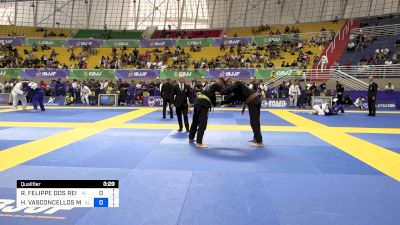 RODOLFO FELIPPE DOS REIS vs HIULLER VASCONCELLOS MENDONÇA 2024 Brasileiro Jiu-Jitsu IBJJF
RODOLFO FELIPPE DOS REIS vs HIULLER VASCONCELLOS MENDONÇA 2024 Brasileiro Jiu-Jitsu IBJJFApr 26, 2024
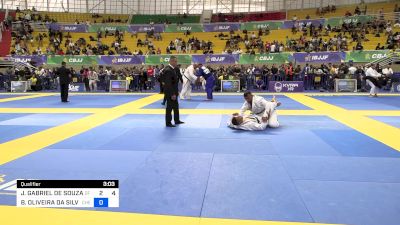 JOÃO GABRIEL DE SOUZA RANGEL vs BRENO OLIVEIRA DA SILVA 2024 Brasileiro Jiu-Jitsu IBJJF
JOÃO GABRIEL DE SOUZA RANGEL vs BRENO OLIVEIRA DA SILVA 2024 Brasileiro Jiu-Jitsu IBJJFApr 26, 2024
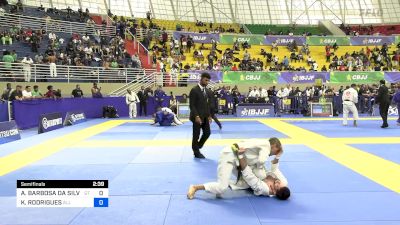 ANDRÉ BARBOSA DA SILVA MOURA vs KALLEU RODRIGUES 2024 Brasileiro Jiu-Jitsu IBJJF
ANDRÉ BARBOSA DA SILVA MOURA vs KALLEU RODRIGUES 2024 Brasileiro Jiu-Jitsu IBJJFApr 26, 2024
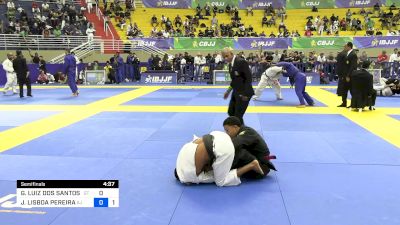 GLAUCIO LUIZ DOS SANTOS ROSA vs JONAS LISBOA PEREIRA 2024 Brasileiro Jiu-Jitsu IBJJF
GLAUCIO LUIZ DOS SANTOS ROSA vs JONAS LISBOA PEREIRA 2024 Brasileiro Jiu-Jitsu IBJJFApr 26, 2024
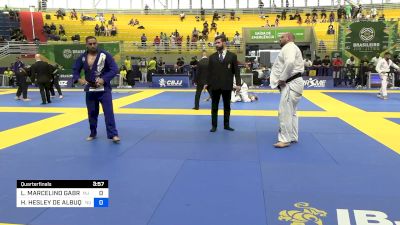 LUCIANO MARCELINO GABRIEL vs HERICO HESLEY DE ALBUQUERQUE PIN 2024 Brasileiro Jiu-Jitsu IBJJF
LUCIANO MARCELINO GABRIEL vs HERICO HESLEY DE ALBUQUERQUE PIN 2024 Brasileiro Jiu-Jitsu IBJJFApr 26, 2024
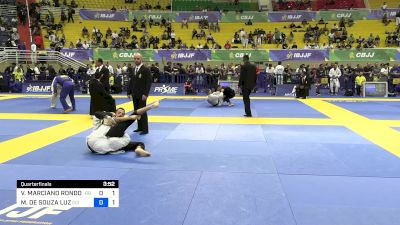 VENINO MARCIANO RONDON DE LIMA J vs MAGNO DE SOUZA LUZ 2024 Brasileiro Jiu-Jitsu IBJJF
VENINO MARCIANO RONDON DE LIMA J vs MAGNO DE SOUZA LUZ 2024 Brasileiro Jiu-Jitsu IBJJFApr 26, 2024
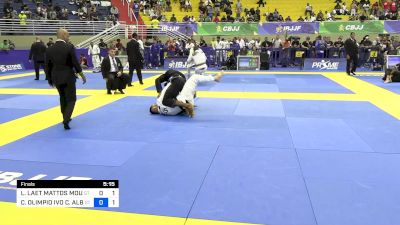 LUCAS LAET MATTOS MOUTINHO vs CHAISE OLIMPIO IVO C. ALBUQUERQU 2024 Brasileiro Jiu-Jitsu IBJJF
LUCAS LAET MATTOS MOUTINHO vs CHAISE OLIMPIO IVO C. ALBUQUERQU 2024 Brasileiro Jiu-Jitsu IBJJFApr 26, 2024
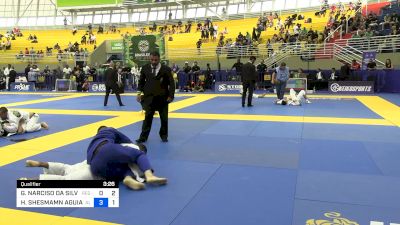 GEOVANE NARCISO DA SILVA vs HIAGO SHESMAMN AGUIAR DE ARAÚJO 2024 Brasileiro Jiu-Jitsu IBJJF
GEOVANE NARCISO DA SILVA vs HIAGO SHESMAMN AGUIAR DE ARAÚJO 2024 Brasileiro Jiu-Jitsu IBJJFApr 26, 2024
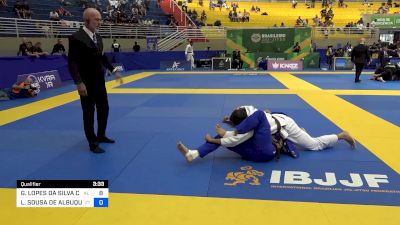 GUILHERME LOPES DA SILVA CHERIN vs LUCIANO SOUSA DE ALBUQUERQUE JUN 2024 Brasileiro Jiu-Jitsu IBJJF
GUILHERME LOPES DA SILVA CHERIN vs LUCIANO SOUSA DE ALBUQUERQUE JUN 2024 Brasileiro Jiu-Jitsu IBJJFApr 26, 2024